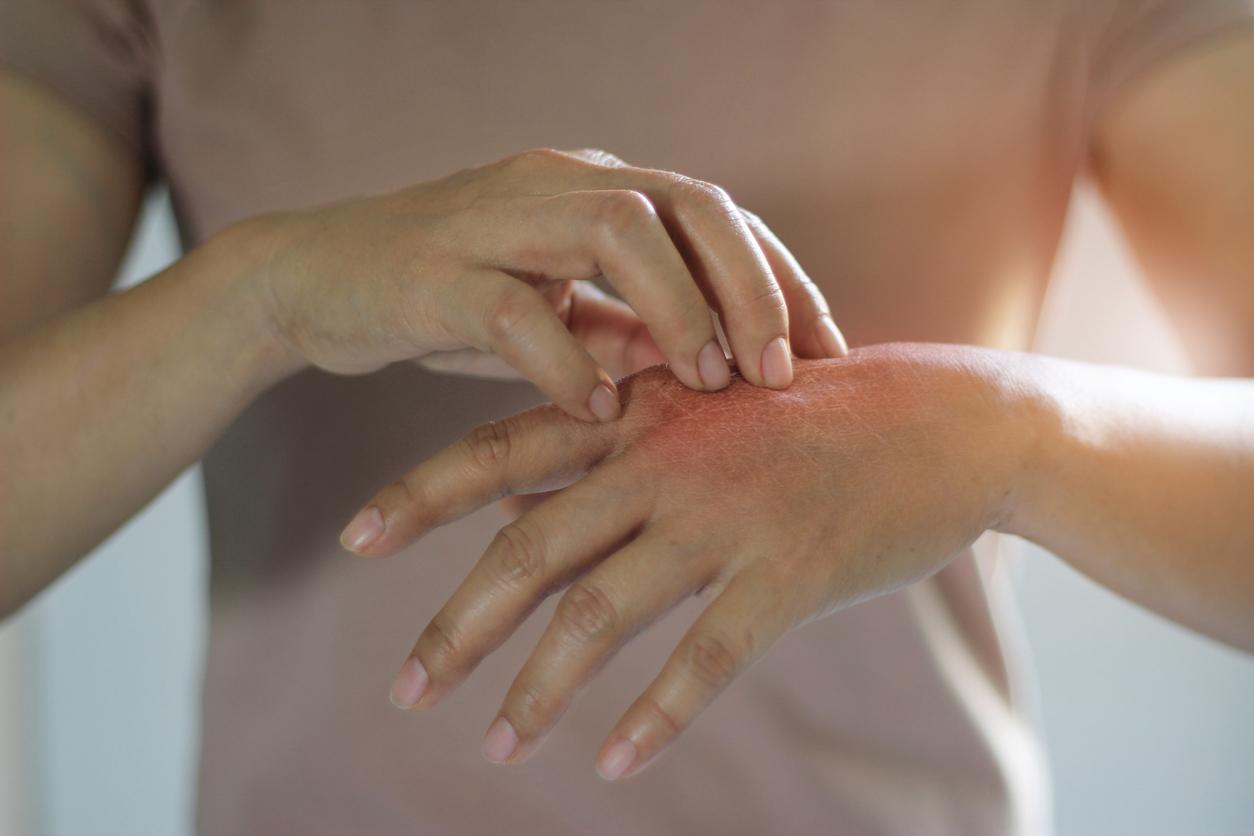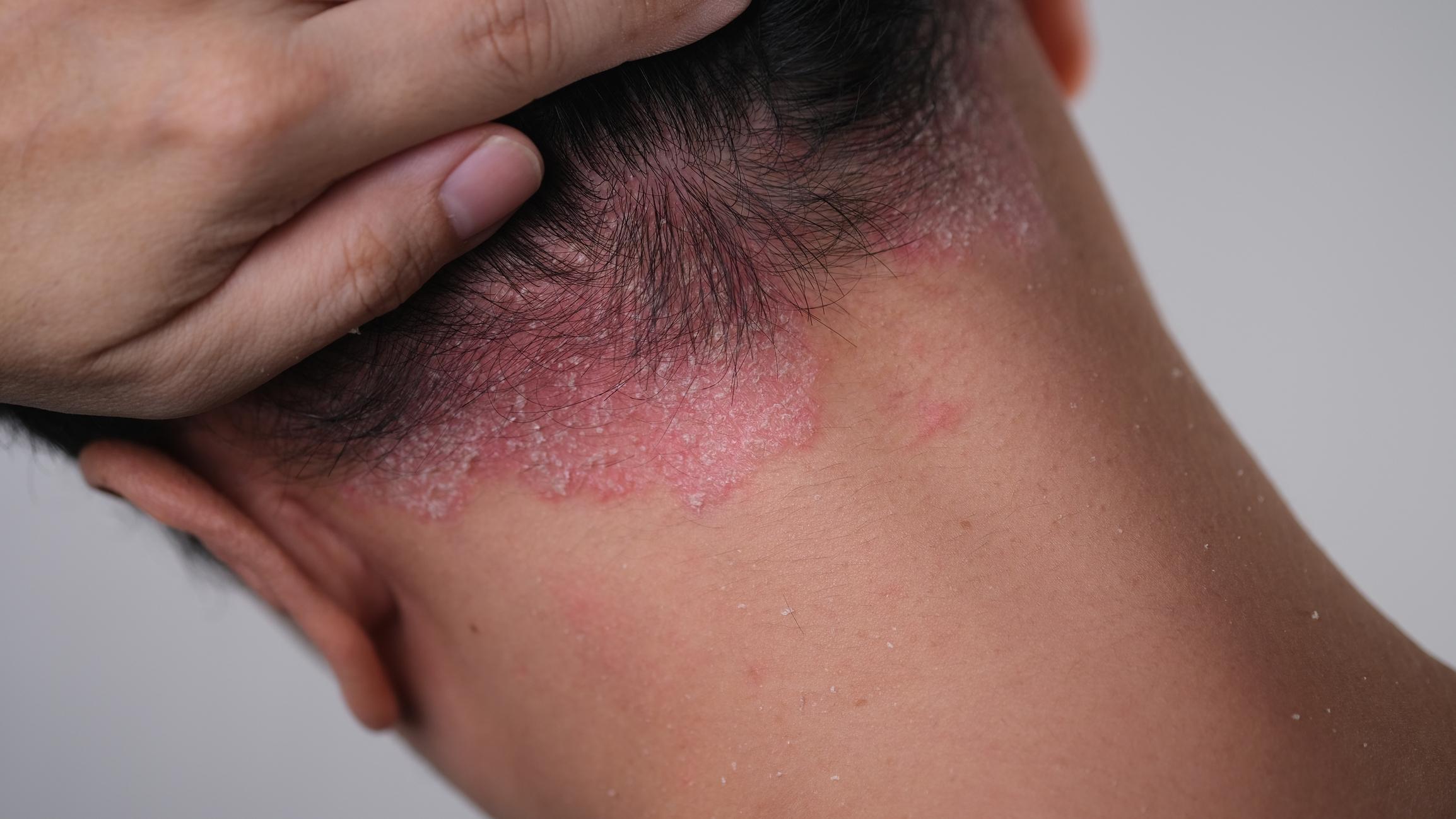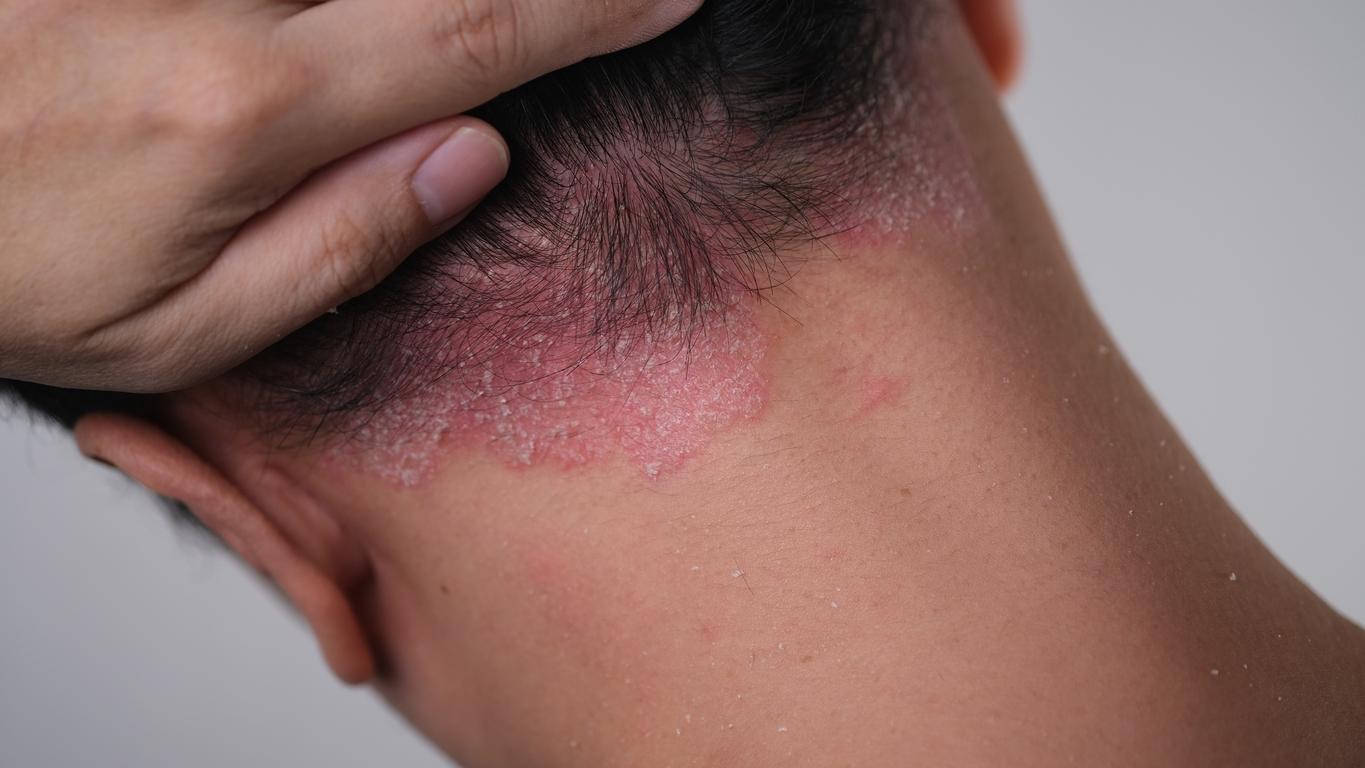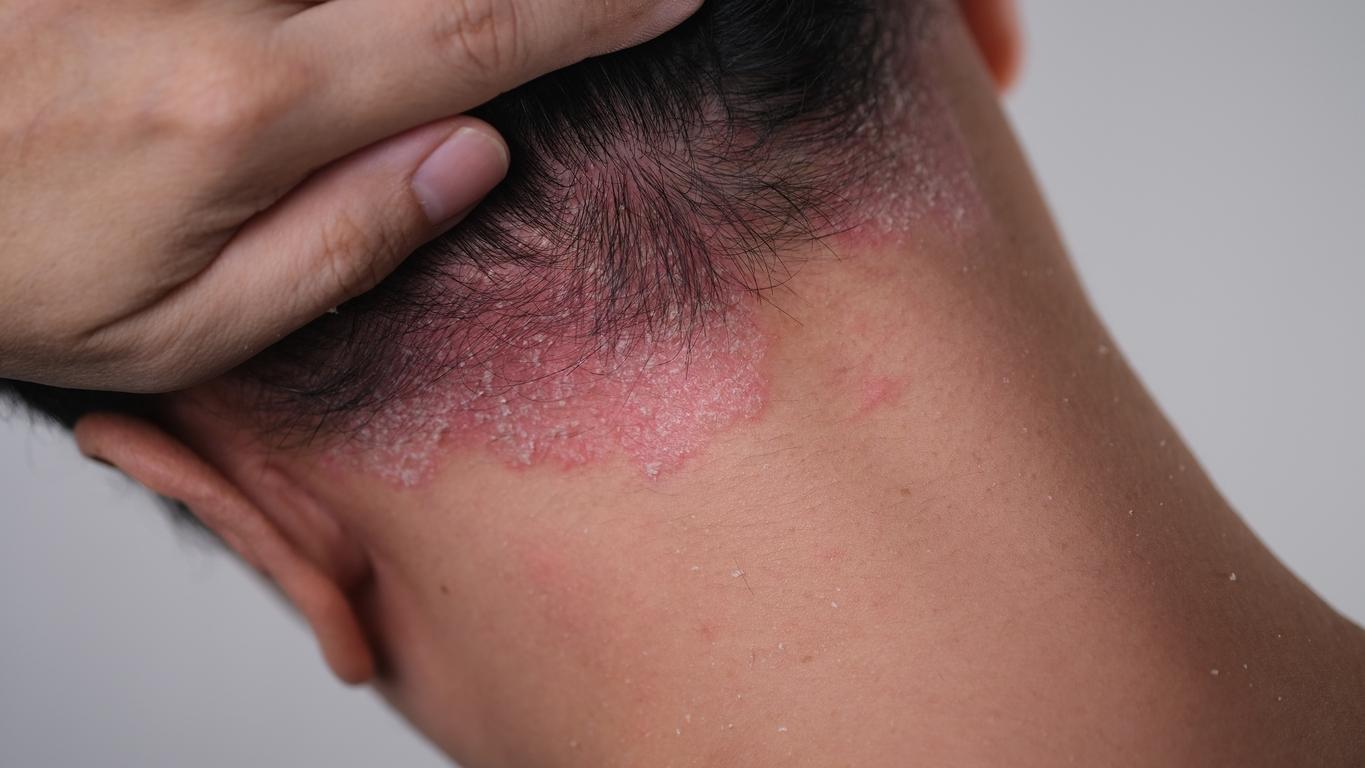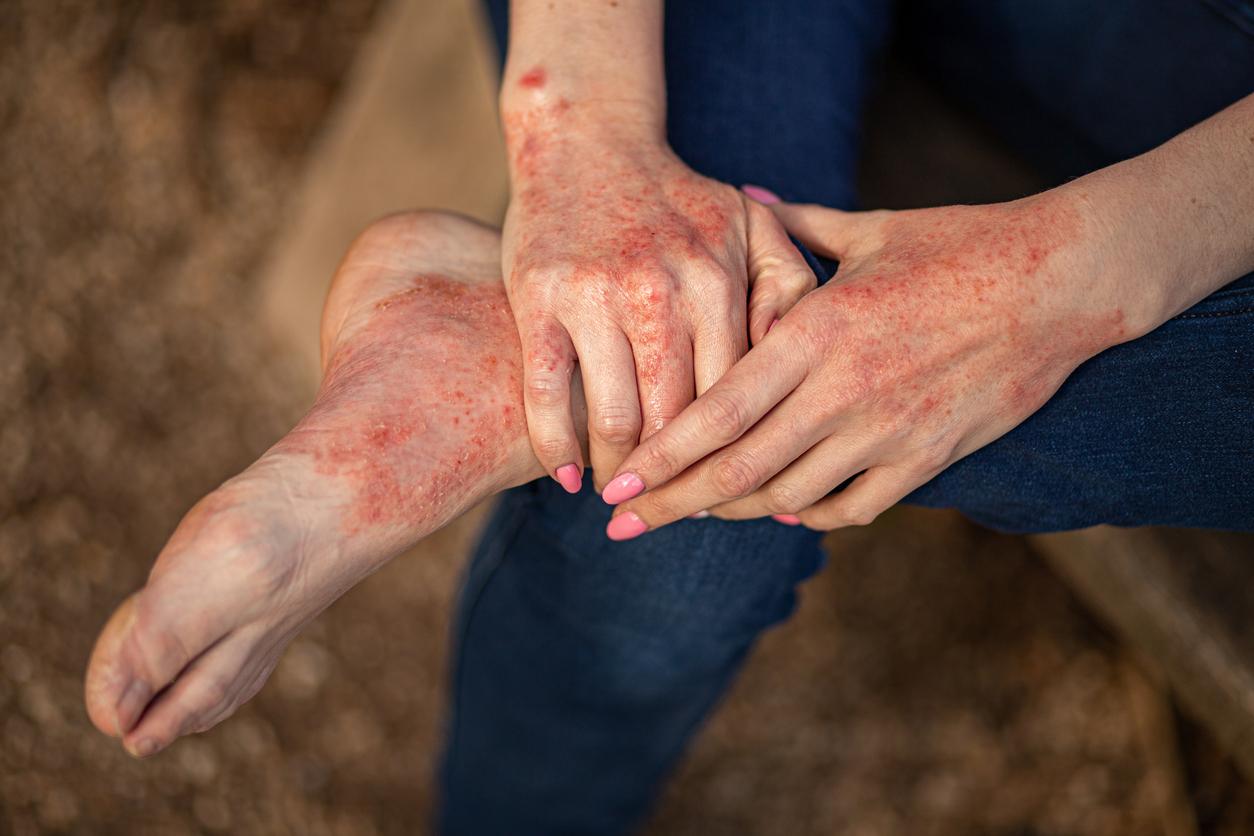Certain types of medications, including those for high blood pressure or antimalarials, contribute to the onset of the disease. Stopping treatment may make all symptoms disappear.

About 2% of the population suffers from psoriasis. The cause of this chronic disease is not known, but scientific research believes that several factors can contribute to its appearance such as heredity or stress. In the review Prescribedoctors explain that certain medications can cause psoriasis or make it worse.
A cause that is sometimes difficult to identify
“Various drugs expose to psoriasis”, specifies the review Prescribe: treatments for hypertension, lithium (which treats mood disorders), anti-infectives including anti-malarials and interferons, immunosuppressive treatments, in particular anti-TN alpha, bupropione (for weaning smoking) and antitumor drugs.
According to the authors’ conclusions, these different drugs can cause or aggravate psoriasis. “The discontinuation of the drug in question is often followed by an improvement, they believe, or even a disappearance of the symptoms”. On the other hand, if the person continues to take the medicine that caused the psoriasis, the treatments for the disease will not be effective.
“The drug origin of psoriasis or its aggravation is often difficult to identify, in particular because of its banal clinical appearance and the sometimes long time to onset”, underlines the article by Prescribe. For the people concerned, it is necessary to discuss with a doctor before making a decision concerning the problematic drug.
“The interest of stopping the drug in question is to be assessed according to the severity of the disorders, the inconvenience caused and the benefit-risk balance of this drug and possible alternatives”, explains the text.
Certain medications can cause or worsen psoriasis.
Read the article ?? https://t.co/Xf0cCdj8V2 pic.twitter.com/ghiZPtOdqr— Prescribe (@RevuePrescrire) October 7, 2019
Breakouts of red patches
People with psoriasis see red patches appear on their skin, covered with white scabs or scales. The disease is manifested by flare-ups, during periods of remission the skin can fully return to its normal appearance. The treatments only allow to treat the symptoms and to avoid an aggravation, which can lead to chronic rheumatism.

.









